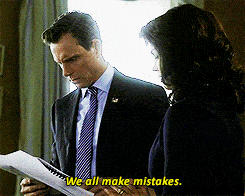Companies that offer a specialized service need professional liability insurance.
Why?
In case they make a mistake that harms their client.
Legendary New England Patriots football coach Bill Belichick likes to use the mantra Do Your Job.
As long as everyone just does their job, the team will win.
But what happens when someone doesn’t?
The system breaks down, often resulting in a loss.
The offending player has let down their teammates, betrayed their trust.
Outside of football, when someone doesn’t do their job, it can result in financial loss for the people that have trusted them.
And what happens then?
Well, that all depends on whether you have the right insurance.

“Professionals who have expertise in a specific area require this type of insurance because general liability insurance policies do not offer protection against claims arising out of business or professional practices such as negligence, malpractice, or misrepresentation.”
Later on in this blog, we explain why you might need professional liability insurance rather than (or on top of) commercial general liability.
But this Investopedia definition is a good start.
Professional liability is also known as Errors & Omissions insurance and/or malpractice insurance, and that’s a good way to think about it.
You give bad direction, provide a poor service, make a bad decision, or even omit — hence, omissions — important information.
Since PLI deals with intangible damage, this coverage tends to apply more to consultants and the self-employed.
Example: A portfolio manager purchases a stock on behalf of a client, and that stock quickly loses a significant portion of its value.
The client sues the portfolio manager for their bad decision that resulted in their financial loss.
TABLE OF CONTENTS
- Professional liability vs General liability
- Who needs professional liability insurance?
- How to find cheap professional liability insurance
- Does home insurance cover my business liability?
You’ve probably come to this blog for one of two reasons:
- You’re a consultant and you just landed a big contract, and the client is requiring you to carry professional liability insurance.
- Your business is growing and you figure it’s time to carry the right insurance.
Both are acceptable reasons.
In the sections that follow, we’ll give you a brief introduction to malpractice insurance so that you can decide for yourself whether or not you need it.

Professional liability vs general liability (CGL)
It’s easy to get these two types of insurance confused.
They’re both useful to professionals, but they accomplish different things.
In this section we’ll break down the differences between the two.
Since we’ve already defined professional liability insurance, let’s take a look at what customers are getting with commercial general liability, or CGL, insurance.
Commercial general liability is an integral part of every business insurance policy that provides cover to your business when it’s responsible for physical harm.
If your store, office, or place of work is the site of an accident.
If your business causes tangible damage to a third party, and they sue you for the resulting damage, commercial general liability insurance covers your penalty costs and your lawyer costs.
Since CGL deals in tangible damage, we’re often dealing with manufacturers.
Example: You manufacture garage door openers.
One of your openers has a malfunction and the customer is injured as a result.
The injured can sue your company for damages.
Your CGL would cover the penalty, plus the lawyer fees you might have had to pay while defending yourself in court.
Differences
The main difference between CGL and PLI is the type of damage caused.
CGL covers tangible damage like injury resulting from malfunction or unsafe environments.
Think of slippery floors, loose electrical wires, and other property-related imperfections that could lead to physical harm to a person.
PLI on the other hand deals more in intangible damage.
Think of professionals providing misinformation, withholding knowledge, or making poor decisions on behalf of a client.
Malpractice and negligence cases typically lead to financial loss rather than physical harm.
Who needs professional liability insurance?
If your company offers a service, it’s likely that you need professional liability insurance.
That applies whether you’re self employed or have a team of employees.

Pro tip: If you’re self-employed and looking for consultant insurance, your business has to be registered before you can be covered.
Here’s a list of professions that can benefit from having professional liability insurance:
- IT professionals who advise clients on cyber & network security
- Lawyers
- Dentists
- Insurance brokers
- Accountants
- Doctors
- Engineers
- And more
Did you notice we even threw insurance brokers onto that list?
It’s true.
At KBD, we carry errors & omissions insurance.
Why?
In case one of our brokers gives bad advice to a client that results in financial damage, or especially, if we forget to add a particular insurance protection to a client’s policy.
We could be sued for either of these mistakes.
Imagine we told a client they had a certain coverage, then when they called to make a claim under that coverage we told them they didn’t have it.
Let’s say one of our brokers promises their client a water protection add-on for their home insurance policy, but then forgets to add it.
The client’s basement floods.
When they find out they’re not covered, they won’t be too happy!
And it’s not their fault, it’s ours.
Our E & O insurance would pick up a claim like this.
As one of our clients, you’re not an insurance broker; we are.
It’s up to us to advise our clients properly.
That’s why this type of insurance exists.

Humans can’t be expected to know everything about medicine, finance, and real estate.
So when we hire professionals in those fields, we expect them to provide a level of expertise that we don’t have.
We expect them to do their jobs.
When they act carelessly or irresponsibly, clients shouldn’t have to pay for it.
Note: There are some professions we didn’t list above that would benefit from professional liability insurance, but would get it in a different way.
In Quebec, certain professionals — like engineers, real estate agents, and dentists — have to buy insurance through a professional order, a body that governs that group of professionals.
For example, the Ordre des ingénieurs du Québec is the engineers’ order in Quebec.
How to find cheap professional liability insurance
Finding cheap professional liability insurance is possible — but you get what you pay for.
Not all professional liability insurance policies are created equal.

Depending on your profession and the size of your business, your insurance premium can vary greatly.
If you’re self-employed and are just looking for a policy to satisfy your client requirements, you can pay as little as $500/year.
If you operate an engineering firm with 100+ employees, your premium can be in the millions of dollars.
KBD can provide an online quote for basic professional liability for companies with annual revenue under $1 million.
It’s the quickest and easiest way to get a quote.
But online quotes aren’t for everyone: If you’re running a multi million or billion dollar company, you’re probably going to want to give us a call to hammer out some of these complex details over the phone.
At that size, you need a professional in your corner.
Looking for professional liability insurance for the IT and tech sectors?
That’s our bread and butter, baby!
KBD is a professional liability insurance broker and we have a great product for professionals in web development, marketing agencies, and related fields.
We also offer liability insurance for personal trainers, physiotherapists, and fitness instructors.
Does home insurance cover my business liability?
YES, but it probably doesn’t cover you for everything you’d like it to.
If you work from home and have frequent client visits, you could add commercial general liability to your home insurance coverage.
It would protect you against the slip-and-fall scenarios, where a client injures themselves at your office, which in this case is your home.
But a home insurance policy will NOT cover the service your business offers, in other words an Errors & Omissions policy.
Say you’re a massage therapist or hairdresser and you work out of your home.
If you injure a customer on the job, and don’t have professional liability insurance, your home policy won’t help you.
That’s where you need to get PLI separately, as if you were working out of an office.
And for those wondering, most home insurance policies will NOT cover your business contents such as laptops, desks, or expensive equipment.
You can cover those assets by purchasing a home insurance business policy.
Wrap-up
Does your company provide a service?
If yes, you need professional liability insurance.
Especially if that service and your expertise is specialized.
Remember the words of the great Bill Belichick: Do your job.
When football players don’t do their jobs, heads may roll (literally).
When you or your employees don’t do yours… Well, that’s what insurance is for.


